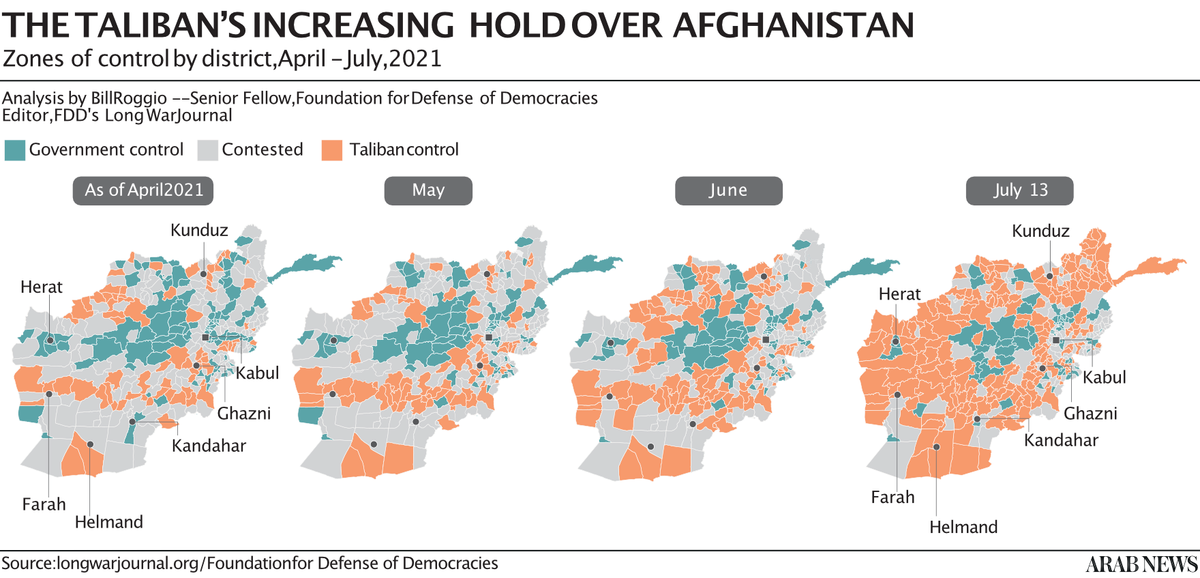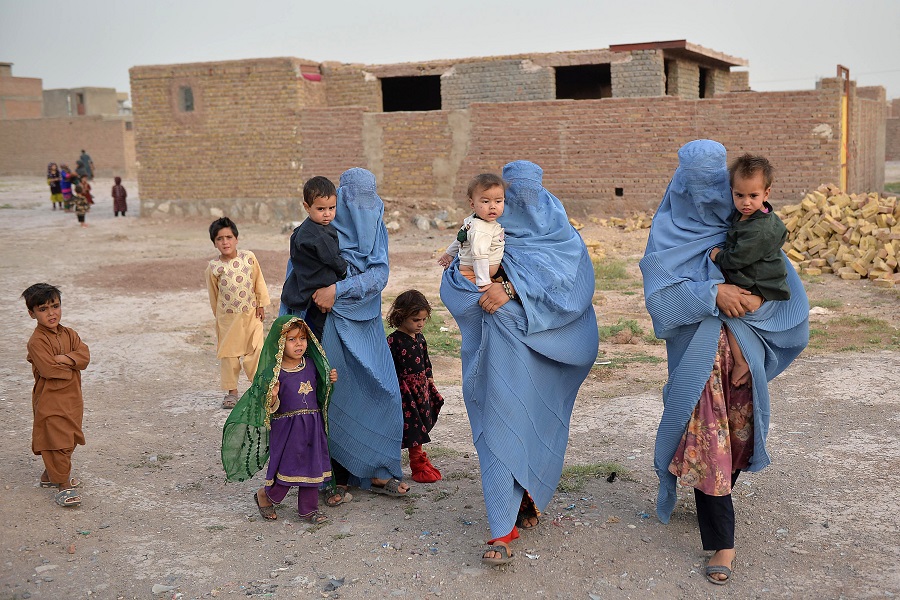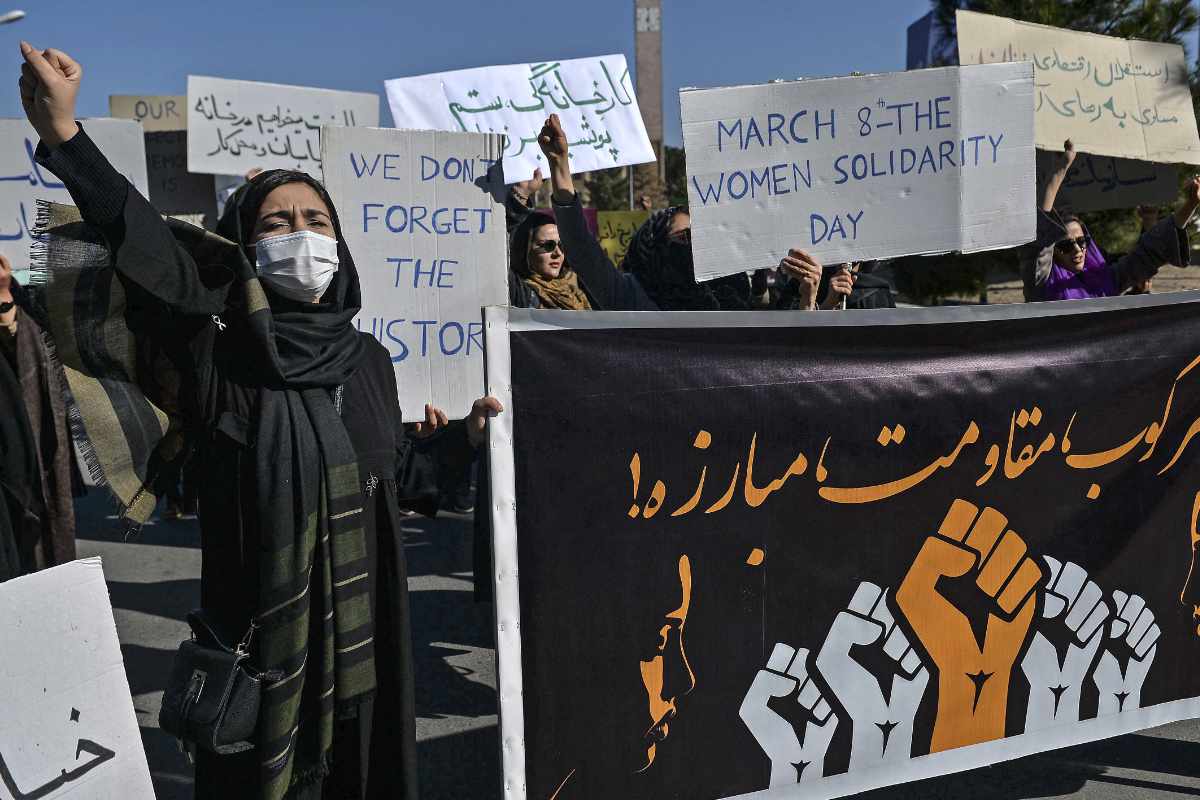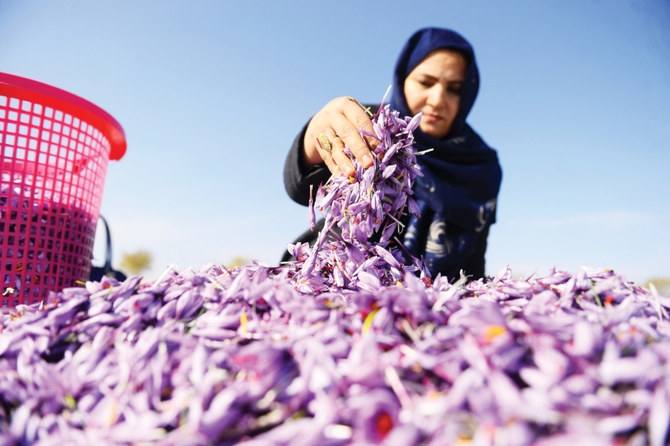KABUL: With US-led forces set to leave Afghanistan by the end of August, the Taliban making rapid territorial gains, and uncertainty over the state of peace talks between the insurgent group and the government in Kabul, a critical question hangs over the fate of Afghan women’s liberties and hard-won rights.
After years of subordination, Afghan women came to enjoy unprecedented freedoms in the years after 2001 when US-led forces toppled the Taliban regime, which had imposed harsh curbs on civil liberties, barring women from education and most occupations outside the home.
In the absence of the Taliban, Afghan women have held key positions in various state institutions, have run for the presidency, and have served as lawmakers, ministers and ambassadors. Governing parties have not opposed such basic principles of democracy as gender equality and free expression.
The imminent departure of the last remaining foreign troops, therefore, is a source of considerable anxiety and tension for the middle class and educated women in Afghanistan’s urban areas, who fear that a return to power by the Taliban would deprive them of the freedoms they currently enjoy.
“Everyone now is afraid. We are all worried about what will happen,” Nargis, 23, manager of the newly opened Aryana fashion store in Kabul, told Arab News.

Nargis left her journalism to work in retail due to the increase in recent targeted attacks on media professionals. (Sayed Salahuddin/Arab News)
“People have witnessed one dark Taliban era. If they come again, certainly they will not allow women to work, and I will not be where I am today.”
Nargis has a degree in journalism, but due to a surge in targeted attacks on media workers in recent years, she decided she could not risk continuing in the profession.
As in any war-torn society, women suffer disproportionately in Afghanistan, which has frequently been ranked the worst place in the world to be a woman. Several female journalists, women’s rights activists, and women serving in the Afghan security forces have been murdered, either by suspected militants or by relatives in so-called honor killings.

Some Afghans who had hoped the Taliban would liberalize their more draconian policies following talks with the US and the Afghan government have been left disappointed by the restrictions the group has imposed in areas it has seized from Afghan forces since the start of the foreign drawdown.
They say the Taliban has ordered women to not venture outdoors without a male family member, to wear the all-enveloping burqa, and have barred men from shaving their beards, reminiscent of the group’s policies when it ruled the country from 1996 to 2001.
“You see in the areas the Taliban is controlling they have imposed forced marriages, sexual slavery, and child marriages are rising,” Shukria Barakzai, a prominent women’s rights activist who served as Afghanistan’s ambassador to Norway, told Arab News.

Afghanis said the Taliban are forcing women to wear a burqa whenever they are outside. (File/AFP)
“They are taking young widows and young girls hostage. This is against the culture of Afghanistan, religion, and all rules of war. War crimes are happening now against the people of Afghanistan and especially against the women of this society.”
Taliban officials have rejected the charges, insisted that they have issued no such orders, and accused critics of trying to tarnish the group’s image.
While women in urban areas oppose constitutional and social changes that would significantly limit their rights obtained during the past two decades, some women, at least in rural areas, are indifferent to the prospect of a Taliban takeover.
These women do not feel connected to women of the urban elite, and would rather speak for themselves. Many of these rural, and even some urban, women consider peace as their main priority, even if it means sacrificing some rights that they are currently unable to exercise in any case.

Women in Afghanistan have enjoyed considerable freedoms in the absence of Taliban after 2001. (Sayed Salahuddin/Arab News)
“The so-called Afghan leaders speak about women’s rights merely to draw the West’s attention to keep them in power and provide them money because we have not seen their sisters and women on TV or with them in public areas,” Nasira Ghafoori, a tailor from Ghazni province, told Arab News.
“Some of them even feel ashamed to mention their daughters, sisters, and wives by name in public. Such leaders and other women who misuse the slogans of women’s rights have no place here. We are only interested in peace and ending the war.”
Not all Afghan women are ready to surrender their freedoms in the interest of peace. Maryam Durrani, a women’s rights activist who runs a gym for women and several education centers in southern Kandahar, the former seat of Taliban power, says she has had to limit her activities and partly close the gym following threats on social media since the Taliban made new inroads into the province.
“They threatened me, saying ‘we will kill you because of your activities.’ Unfortunately, because of that, as a precautionary measure, we have shut down the club to protect the lives of our customers,” Durrani, winner of the International Women of Courage Award 2012, told Arab News.
FASTFACTS
Taliban banned girls from studying and stoned women to death for crimes such as adultery.
Afghanistan’s parliament today has 68 female lawmakers, accounting for about 30 percent of the lower house.
More Afghan women were killed or wounded in the first half of 2021 than in the first 6 months of any year since 2009.
“The issue is not that the Taliban is coming back. It depends on the Taliban’s mentality and ideology. If their ideology has changed, then we may have some of the freedoms that we have now, but if they come with their past ideology, then it is clear women will not have a good time.”
The rise of the Taliban in 1996 had disrupted a long and uneven journey to women’s emancipation through education and empowerment. In the 1920s, Queen Soraya played an active role in the country’s political and social development alongside her husband, King Amanullah Khan. A bold advocate for women’s rights, she introduced modern education for women, one that included sciences, history, and other subjects.
After some setbacks, women in the 1960s helped draft Afghanistan’s first comprehensive constitution, which was ratified in 1964. It recognized the equal rights of men and women as citizens and established democratic elections. In 1965, four women were elected to parliament and several others became government ministers.
Women’s status improved rapidly under Soviet-backed socialist regimes of the late 1970s and 1980s. Parliament strengthened girls’ education and outlawed practices opposed by women. By 1992, despite the political upheavals wracking the country, Afghan women were full participants in public life.

Women demonstrators march toward to the governor office during a peaceful protest to mark International Women's Day in Herat on March 8, 2021. (File/AFP)
With the withdrawal of Western forces, not only is the fate of Afghanistan’s democratic institutions in peril but also the human rights of its women, going by reports streaming in from beleaguered districts.
Asila Ahmadzai, a senior journalist with Afghan news agency Farhat, says educated women in civil society, in the media, in rights groups, and involved in entrepreneurial pursuits have fled their homes in the northern and northeastern provinces that have fallen to the Taliban.
“The situation for women in Afghanistan now is very worrying because the Taliban is gaining ground. Due to the fear of the Taliban, educated women have moved to Kabul from the rural areas,” she told Arab News.
“No female activist, member of civil society, journalist or trader wants to live in Taliban-held areas because the Taliban do not allow them to work. The Taliban only allows girls to go to school up to the age of seven — not beyond that age. If the Taliban takes cities, educated women will then leave the country for good because they cannot afford to live under the group’s restrictions.”
Women such as Barakzai fear that the withdrawal of foreign troops, coupled with the failure to obtain guarantees from the Taliban that they would honor women’s rights as enshrined under the constitution, means that the situation for women and girls will be far worse if the group retakes power.

Taliban militants are expected to capture significant territory in Afghanistan, threatening the rights of young women and their families. (File/AFP)
Some have pinned hopes on the US-sponsored talks between Kabul and the Taliban and believe there will be pressure on the Taliban from outside to reform some of its views, especially from Washington, which has repeatedly reiterated the need to protect the gains made since the Taliban’s removal.
“In this era, there is no place for attempts to limit girls’ access to school or women’s rights in society, the workplace or governance,” Ross Wilson, the US chargé d’affaires to Kabul, tweeted last week in response to worrying reports from areas conquered by the Taliban.
“To the Taliban — welcome to 2021. Women and men have equal rights … halt your efforts to undermine the gains of the past 20 years. Join the 21st century.”
Critics, however, argue that the US has very little leverage over the Taliban’s attitudes and policies since it has failed to compel the Taliban to halt its attacks, which was a key component of the deal it struck with the group in exchange for the withdrawal of foreign troops.
“Whether government negotiators can force the Taliban not to weaken women’s rights and the opportunities of middle and upper-class urban women will largely depend on what happens in the war between the Taliban and the government,” Taj Mohammad, a Kabul-based analyst, told Arab News.
“Long gone are the days when US leaders justified the war and the invasion partly due to human and women’s rights issues.”
_____________________
• Twitter: @sayedsalahuddin


























